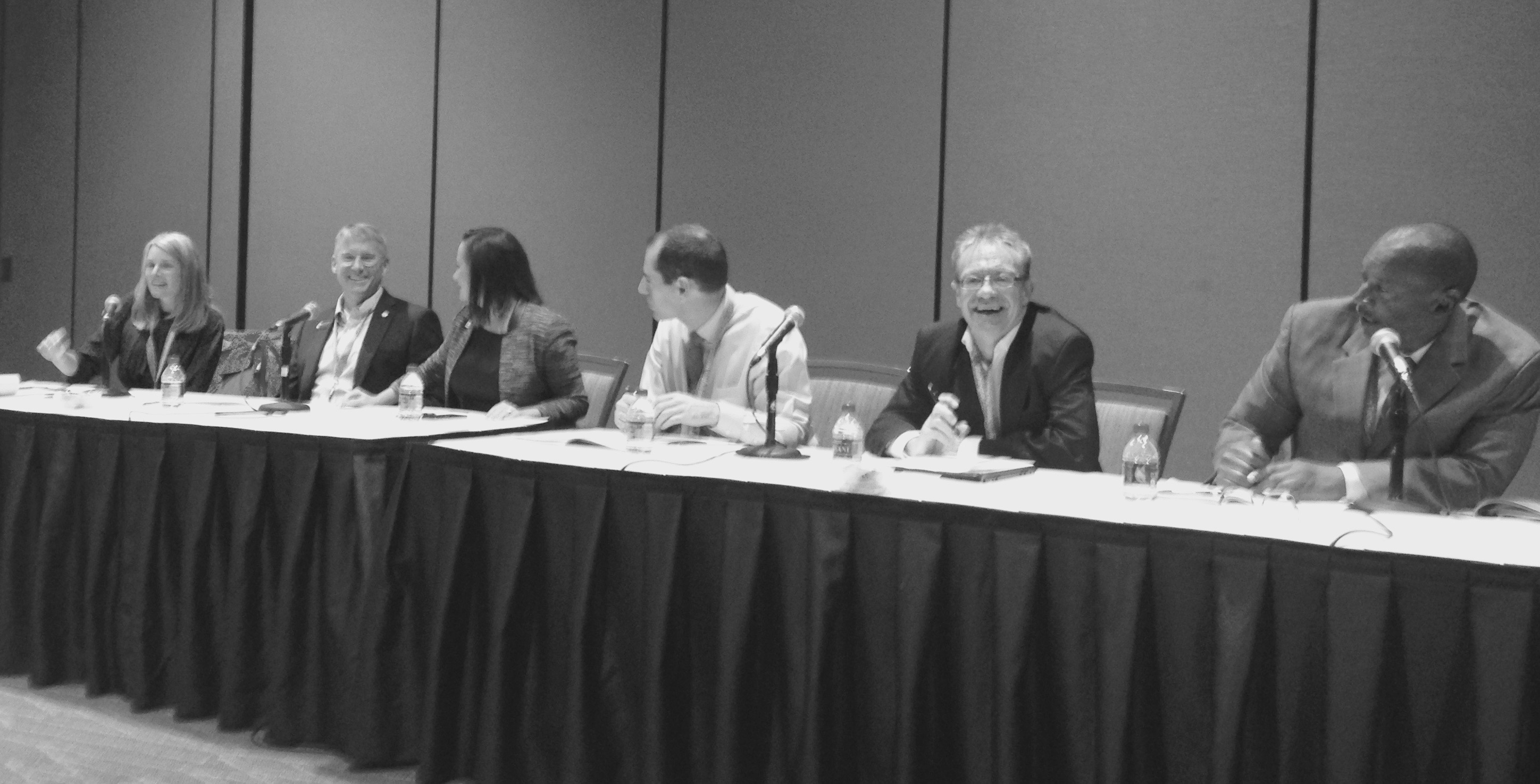What will make Washington state the leading region in the world for technology?

Last week I participated in FullConTech, a major event in Seattle hosted by the Washington Technology Industry Association (WTIA). It was ambitious in scope, seeking to identify and develop plans to address what will make Washington state the leading region in the world for technology.
Building on the tremendous success the region has already achieved will require real work on many fronts. Two Northeastern-Seattle team members and myself helped lead this discussion in different roles.
Dr. Ian Gorton, our Director of Computer Science, was on the panel addressing how we develop our local pipeline. He suggested that the innovative Computer Science ALIGN program was a terrific model for other higher ed institutions to look at. The ALIGN approach is truly ground-breaking, as it seeks to substantially broaden the existing pipeline of 14,000 computer science graduates, by working with the larger potential pipeline of undergrads from various programs of study who may seek to transition to a more high-demand field. Northeastern has proven in Seattle that it can recruit many of these students, especially women and underrepresented minorities, and over 18-24 months provide them with the skills needed to secure jobs in the technology sector.
Dr. Paula Boyum, Associate Dean at Northeastern-Seattle, facilitated an afternoon session on Higher Education, which focused on identifying steps higher ed institutions can take, by working collaboratively. The group agreed to use the WTIA to identify best practices to be shared and implemented, focusing on career opportunities and pathways, quality curriculum and delivery modes, diversity and access, and integration of experiential learning and projects into the academic experience.
I was a panelist on the broader topic of how our region can manage the inevitable cultural changes associated with the spectacular growth in technology companies and jobs. The panelists agreed on several key points:
- The growth is coming and will only get more significant.
- Climate change will tend to increase the popularity of the northwest, as much of the nation gets hotter and drier.
- The challenge of growing our workforce and affordable housing, in the face of increasing gentrification, is one real concern, with no easy answers.
The panel also called out the need for increased diversity of all kinds in our tech workforce. While the new cosmopolitanism associated with the influx of people to Seattle from all over the world is great, the flip side is the loss of the distinctive character of many of Seattle’s neighborhoods – how do we preserve the character of neighborhoods like Capitol Hill and Fremont?
Representative Cyrus Habib wrapped up the discussion on a philosophical note, identifying three aspects of what he called the “libertarianism of technology”: 1) the illusion of the “true meritocracy” many claim exists here; 2) the assumption that the impact of disruptive technology is always good (but rarely asking why); and 3) the overriding suspicion of government, which many feel never solves problems, but only gives the rich and powerful tax exemptions and less regulation.
We live in a complex ecosystem of technology, culture and people trying to get ahead and have fulfilling jobs and a future. While institutions like WTIA and Northeastern-Seattle have many important roles to play in creating the future, it’s up to all of us to engage, help identify solutions to the varied challenges we face, and work together as one community to help this region and world live up to its immense potential.
– Dean Tayloe Washburn




